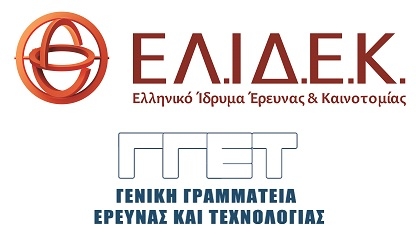 This project refers to the criminal and criminological approach of the dissemination of false information phenomenon on internet and social media, in the form of hoaxes and the reformation of the provision of the article 191 of the Greek Penal Code regarding the dissemination of false information online. It is a fact that online messages (especially through social media) are transmitted anonymously and with much greater speed and dispersion on a cross – border basis – to such a point that perhaps even the critical infrastructure of states is threatened. In addition, the economic benefits that may arise from such practices is an issue which remains to be investigated and delineated.
This project refers to the criminal and criminological approach of the dissemination of false information phenomenon on internet and social media, in the form of hoaxes and the reformation of the provision of the article 191 of the Greek Penal Code regarding the dissemination of false information online. It is a fact that online messages (especially through social media) are transmitted anonymously and with much greater speed and dispersion on a cross – border basis – to such a point that perhaps even the critical infrastructure of states is threatened. In addition, the economic benefits that may arise from such practices is an issue which remains to be investigated and delineated.
 A principal field of investigation is the behavior of Internet users, especially the credulity or incredulity to information in cyberspace, their emotional involvement with social media, the influence of the latter in their consumption patterns, the sense of security when surfing on Internet etc. For this reason a survey on a sample of users of social media will be carried out. This survey will be methodologically combined (qualitative-quantitative), with regard to its purpose, descriptive and will be mainly conducted on primary data collected by a questionnaire and interview technique on a feasibility sample. Also, data obtained from social networks, through specific tools that these offer, in order to analyze the profile of the users who disseminate false news and lead other users to the further dissemination of these, will be taken into account.
A principal field of investigation is the behavior of Internet users, especially the credulity or incredulity to information in cyberspace, their emotional involvement with social media, the influence of the latter in their consumption patterns, the sense of security when surfing on Internet etc. For this reason a survey on a sample of users of social media will be carried out. This survey will be methodologically combined (qualitative-quantitative), with regard to its purpose, descriptive and will be mainly conducted on primary data collected by a questionnaire and interview technique on a feasibility sample. Also, data obtained from social networks, through specific tools that these offer, in order to analyze the profile of the users who disseminate false news and lead other users to the further dissemination of these, will be taken into account.
Under this research, the requirements and the directions will be defined in order to update the provision of the article 191 of the Greek Penal Code, if it is considered as necessary by the investigation, regarding the role of the Internet and information systems in general in the dissemination of false information and concrete proposals for the reforming of this provision will be made. It will also be examined whether any such behavior also involves the criminal offense of other provisions of the Greek Penal Code. Finally, measures for the relevant anticrime policy focused on innovative crime-prevention legal policies at a national and international level will be proposed, without of course ignoring the alternative arrangements and methods, which lie in other areas of law or outside the establishment of legal rules. Within the context of anti-crime policy, algorithms and / or software that identify potential hoaxes and inform the users of social media or identify the potential perpetrators will be proposed.
The scientific impact and innovation of the project is important as fake news and hoaxes are a new phenomenon, completely uncharted at a legal treatment level even by the leading European texts and bodies of legislation on cybercrime.
Project Τitle: Hoaxes and dissemination of false information – Research on the (in)security of false information online and the technical – financial dimension of the phenomenon – Legal treatment and de lege ferenda
Acronym: Criminal and criminological treatment of hoaxes
Project Duration: September 12, 2018 – September, 11, 2021
Project URL: fakenewscrime.gr
Project Framework & Funding: This project has received funding from the Hellenic Foundation for Research and Innovation (HFRI) and the General Secretariat for Research and Technology (GSRT)
Funding: 150.000 €
Principal Investigator (UNIWA): Dr. Fotios Spyropoulos, Email: fspyropoulos@gmail.com, Tel: +302110135653
Research Publications / Results / Patents (up to 3)
- Spyropoulos, “The spread of false news in the era of ”fake news“- Analysis of Article 191 of the greek Criminal Code before the modern (technological) challenges” (in greek), scientific journal “Criminal Justice”, Vol. 3/2019, ed. Nomiki Vivliothiki, pp. 288 f.
- Spyropoulos, Ar. Kompothrekas, Ev. Androulaki & N. Karagiannis, “Fake News Online – Their Legal, Political and Social Impact – Methods and Techniques of Prevention” (in greek), exclusive discussion panel for the presentation of the research entitled, conference “9th Infocom Security – Cyber Security in the Age of Industry 4.0 – Challenges & Opportunities” on April 17th and 18th, 2019 at the Dais Conference Center in Marousi, Attica, url: https://www.youtube.com/watch?v=HbmK6mRjPxw&feature=emb_logo
- Spyropoulos, “The spread of “fake news” – Reflections on the Practices and Limits of Internet Disinformation Prevention” (in greek), scientific journal “Criminology”, Vol. 2019, ed. Nomiki Vivliothiki, p. 57 f.











